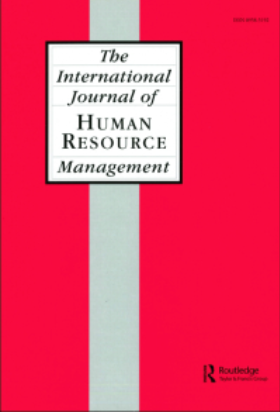性别和地域对接受海外任务意愿的影响
IF 5.9
2区 管理学
Q1 MANAGEMENT
International Journal of Human Resource Management
Pub Date : 1999-01-01
DOI:10.1080/095851999340521
引用次数: 50
摘要
两所大学的商科学生被问及是否愿意接受国际职位。与Adler (1984a, 1986)的发现相反,当确定特定的参考国家时,性别是一个重要的预测因子。这里考虑的国家特征包括文化距离(或受访者本国文化与参考地点文化之间的差异)以及参考国家的发展水平和政治风险。国家之间在文化距离和人类发展指数上的差异解释了男性和女性在接受国际任务的意愿上的巨大差异。然而,政治风险在解释这些性别差异方面并不重要。本文章由计算机程序翻译,如有差异,请以英文原文为准。
The impact of gender and location on the willingness to accept overseas assignments
Business students in two universities were queried regarding their willingness to accept international postings. In contrast to Adler’s (1984a, 19 86) findings, gender was a significant predictor when specific referent countries were identified. Country characteristics considered here included cultural distance (or the difference between the cultures of the respondent’s home country and that of the referent location) and the levels of development and political risk in the referent country. Differences among countries on indices of cultural distance and human development explained substantial variance among males and females in their willingness to accept international assignments. Political risk, however, was not significant in explaining these gender differences.
求助全文
通过发布文献求助,成功后即可免费获取论文全文。
去求助
来源期刊
CiteScore
11.70
自引率
7.10%
发文量
77
期刊介绍:
International Journal of Human Resource Management is the forum for HRM scholars and professionals worldwide. Concerned with the expanding role of strategic human resource management in a fast-changing global environment, the journal focuses on future trends in human resource management, drawing on empirical research in the areas of strategic management, international business, organizational behaviour, personnel management and industrial relations that arise from: -internationalization- technological change- market integration- new concepts of line management- increased competition- changing corporate climates Now publishing twenty-two issues per year, The International Journal of Human Resource Management encourages strategically focused articles on a wide range of issues including employee participation, human resource flow, reward systems and high commitment work systems. It is an essential publication in an exciting field, examining all management decisions that affect the relationship between an organization and its employees. Features include; -comparative contributions from both developed and developing countries- special issues based on conferences and current issues- international bibliographies- international data sets- reviews

 求助内容:
求助内容: 应助结果提醒方式:
应助结果提醒方式:


